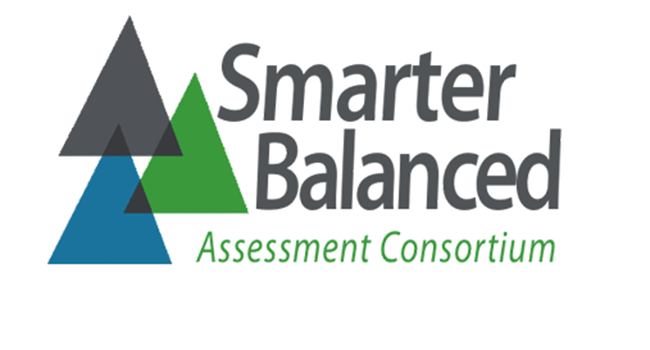Rethinking opposition to SBAC tests
If you’re seeking authenticity, as many signs that are posted around the school demand, you sure aren’t going to find it through opting out of smarter balance testing.
While Common Core has to be the most poorly executed educational plan since the Bush administration, it’s imperative that you take the tests anyway. Why? Because according to regulations set in stone by Common Core, every school must have at least 95 percent of all eligible students participate in testing or else the ranking will fall. If more than five percent of juniors choose to opt out, it could drastically hurt Cleveland’s report card.
Every school is graded on this scale, thus serving as a unit of measure to compare our school against other schools. If our grade falls, Cleveland is not going to appear as academically strong as we really are. This in turn will affect how the community, colleges, and others perceive our school, as well community interest and concern for how our students feel about our school. Our academic abilities should be reflected on our report card and we should be given credit where credit is due. Anything otherwise would be an injustice to our school and to the students that have worked hard to achieve their academic status. “I have a lot of respect for Cleveland and the academic achievements of the kids that are here, [and] I do not want Cleveland to be painted with a negative brush,” said Jan Watt, special projects coordinator.
The conditions for opting out of testing are simple, yet restrictive. You can’t opt out based on having already met the graduation requirements with OAKS, or because you aren’t good at testing. According to state guidelines, a student “[may] be exempted from state testing based on either disability or religion,” along with a proposition of “an alternative individualized learning activity” that meets the same criteria as testing would, authorized by a parent. Anything other than a disability or religious restriction is an immoral and unethical falsehood that will not be tolerated by the school. So if you’re opting out, tell the truth.
Furthermore, protesting the tests through opting out doesn’t help anyone, not even the people who are opting out. You aren’t showing your discontent with the test, you’re simply taking yourself out of the equation. You aren’t sacrificing anything, nor are you sending a message. If you don’t take the test, you can’t even help improve it because you don’t know what’s on it. By opting out through means of protesting standardized testing, you’re merely doing yourself and our school a disservice. The PSAT, SAT, ACT, and IB tests are all standardized as well. Therefore, if you do choose to opt out because of a religious conflict with standardized testing, it’s notable to mention that your beliefs probably conflict with these tests, too. That being said, opting out because of a disability or religious reason is perfectly understandable.
Of course, no one wants to be put in a box or be forced to put up with standardized learning. It’s important to stand up for what you believe in and I commend those who do. However, I will ask you to please remember that your decision, while yours to make, doesn’t only affect you; it affects everyone in our community. You are responsible for your choices and your decisions have consequences. You are expected to be accountable and to attempt to make the best choice for you and your community.
“There needs to be some expectation of accountability for students’ learning [and] for whether teachers are teaching what [the students] are supposed to learn,” said John Golden, Cleveland’s instructional specialist.
Accountability plays a huge part in our daily lives, yet we don’t seem to have much of it. Too often we consider ourselves before we think about other students. Furthermore, we don’t think far enough ahead to contemplate how our decisions may affect the people around us. Maybe it’s human nature to take care of ourselves first, but when our community is at stake, it’s time to stop thinking about me, me, me, and start considering your community as a whole. The same can be said about opting out.
“We’re a public school, and I think that we’re responsible for the general public out there to be able to say, ‘This is what students know, this is what they don’t know yet,’” said Golden. “Without some sort of accountability, we don’t know as a school what we’re teaching well and what we’re not.” Golden proposes an insightful point. Testing, while flawed, is the most accurate resource we have for judging how much students know as a whole. There is so much to learn from looking at where students excelled and where they didn’t. This information, if applied appropriately, can serve as feedback for what changes need to happen in the school system and curriculum to help students get the best education possible. If people opt out, there’s nothing that administrators can do to improve the test to students’ benefit.
Signs posted around Cleveland boldly state: “DON’T BE PUT IN A BUBBLE” and “CHOOSE AUTHENTICITY.” They demand that we “say no to standardized education and opt out of all Common Core and Smarter Balance tests.” Unfortunately, there’s a fair chance that whoever is encouraging this tirade of anxiety hasn’t done their homework. If you choose to opt out, keep in mind that your decision has consequences that affect everyone in our community. Don’t forget that opting out is not a form of protesting. Opting out will only serve to make Cleveland appear academically lower than we are. The best way to improve the test is to take it.

Position within Newspaper: Editor-in-Chief, Content Editor, Copy Editor
Graduation year: 2017
Favorite thing to do: I am a passionate writer and...






